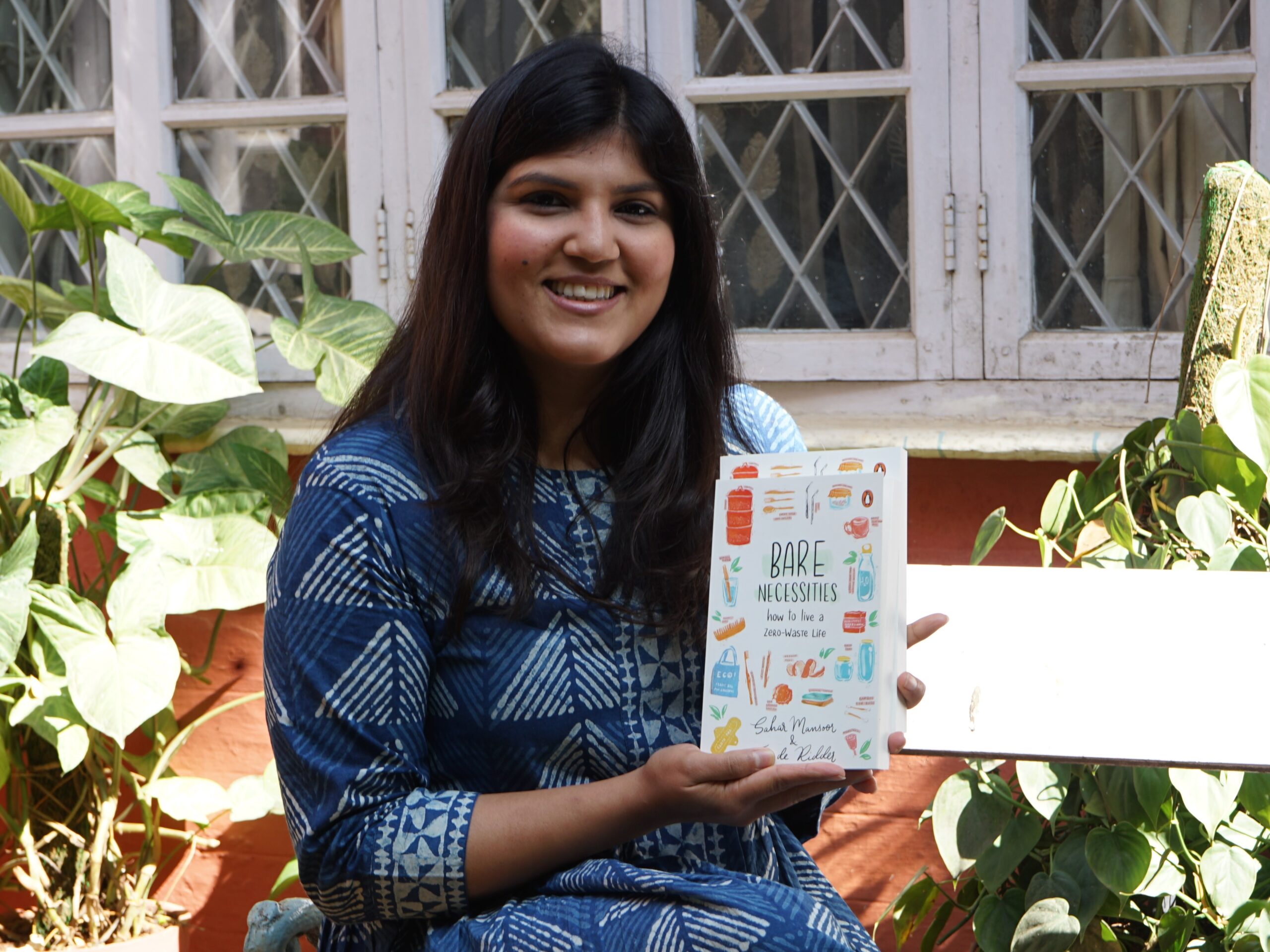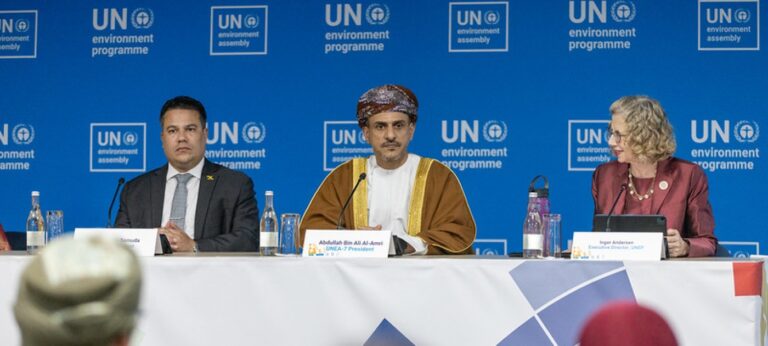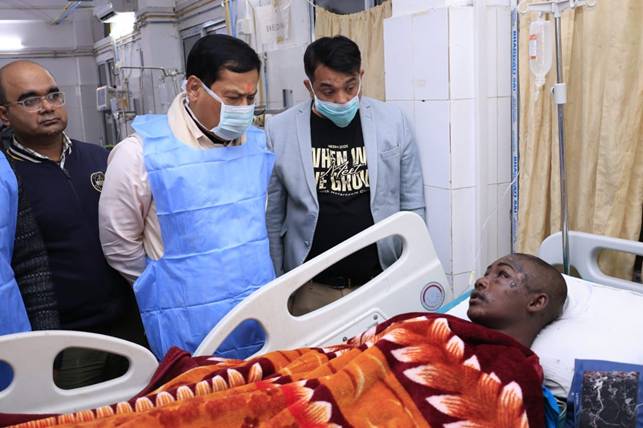
Literary Speaking: A Zero Waste Life
Zero waste living which involves minimizing the amount of waste at the individual level, to as close as possible to zero, so nothing gets sent to the landfills or the incinerators is urgently needed if we want to fight the scourge of environmental pollution and climate change, says Sahar Mansoor, author of the book Bare Necessities: How to live a Zero Waste Life.
“The world is facing an environmental crisis caused by excessive water, excessive pollution and lots of habitat destruction primarily because of the trash we are producing which takes years to degrade, or actually which never degrades,” she explains and adds that every toothbrush or water bottle that the collective world has ever used is just sitting somewhere on this planet.
“Plastic just breaks into tiny pieces called microplastics. And then, of course, it lands up in the food chain and in the water that you are drinking. Research suggests that we consume a credit card size worth of plastic each week,” she elaborates.

Bengaluru-based Sahar Mansoor is also a social entrepreneur, being the founder of ‘Bare Necessities’, which makes products that do not produce any waste. She has been recognized the world over for her efforts to safeguard the environment and is the recipient of the Red Club X Young Leader Award, instituted by Cartier, the accessories company.
Sahar studied at Cambridge University and while working for the World Health Organization, she was appalled to see how garbage is segregated and the enormous amount that is collected all over our cities. Having been sensitive to this issue ever since she was 19, she decided to do something about it and has been active in this space ever since. Her learnings are all contained in the book which can help people live a zero-waste life.
“The book is essentially a comprehensive guide that tries to spread awareness or educate readers about adopting a low-waste lifestyle. It provides lots of practical tips, sustainable alternatives, mindful practices to reduce your waste in various aspects from the minute you wake up to the minute you sleep”, informs Sahar. The book deals with personal care products, home care products, and those normally in use at the office and the community level with elements of a workbook that can help readers assess their own life.
The workbook has self-assessment quizzes, goal-setting exercises, and DIY projects that readers can try at home. It encourages everyone to take practical and actionable steps that they can incorporate into their daily lives. “I wanted to inspire readers to make sustainable changes in their lifestyle as it will not only benefit them, but it will also benefit the planet in the long run,” she adds.
Giving an example, Sahar cites a DIY task to make your toothpaste with ingredients that you can find in your kitchen. Another activity makes the reader aware of the plastic packaging on the products they buy and how they can switch to a more sustainable option. There are also recipes for zero-waste cooking.
“We are currently living in the largest global garbage crisis of our lifetime. We should adopt recycling, repairing, and swapping if we want to make an impact. Think about how you can reuse your plastic water bottle hundreds of times. We should encourage the repair economy by taking our shoes to the cobbler instead of throwing them away if they get a little spoilt,” Sahar urges. She also recommends getting your clothes stitched from a tailor, because that will not only support the local economy but will also result in a lower carbon footprint.
“As the distance between producer and user of clothes increases, transparency is reduced and contributes to your carbon footprint. It is all about sustainable living, which means being a responsible consumer or meeting the needs of today and the present without compromising the ability of future generations to meet their own needs. It encompasses environmental conservation, social justice, economic stability, and ethical practices,” explains Sahar.
Explaining about microplastics, Sahar says that there are a large number of products that have microplastics. “Synthetic clothing is one source of microplastics. Every time you do a laundry load, microplastics go into the water and land up in the groundwater, and imagine you might be growing food in the same kind of groundwater, or the same soil polluted with microplastics. And that is why we are finding microplastics in breast milk, in blood, and even in newborn babies,” she reveals.
“One can reduce plastic usage by using a reusable bag for shopping for groceries. One can always say no to single-use plastics and use alternative materials like stainless steel straws instead of plastic ones, carry reusable containers with us everywhere, and also support local businesses that are using sustainable packaging,” she advises.
“Individual action is a very tangible way of knowing that you are part of the solution. But we need a lot of collective action, which means we need policy change from the top. We need more meaningful corporate responsibility on how we are producing things, consuming things, etc. And also, we need more global cooperation for combating climate change more effectively,” she opines and suggests that individuals can also inspire the system by creating a demand for better sustainable products and cleaner air and clean water etc as then the institutions around us will be forced to change as well.
Sahar’s own company ‘Bare Necessities’ produces sustainable products like shampoo and soap bars. They also make products in which you just have to add water to make your own hand wash and dish wash liquid. All the products come in recyclable, compostable, or reusable packaging.
Early in her entrepreneurial journey, Sahar realized that there was a need to create awareness about the products, and also around sustainability. So, she began to organize workshops for training and creating awareness.
Sahar also advocates composting kitchen waste which can yield high-quality fertilizer, instead of landing up in the landfill. “It is super easy; all you need is a terracotta pot with holes in it. You have to fill the bottom of this pot with a brown layer which can be anything from dried leaves to shredded cardboard to remix powder. Next add your wet waste from the kitchen for example banana peels, cucumber peels etc and cover with another brown layer. The compost that you get from this is rich in nutrients that you can use for your plants. One can reduce 60% of their waste by just composting every day,” Sahar informs.
Sahar also urges people to educate themselves to reduce their impact on the environment by minimizing consumption. She also suggests segregating your waste as much as possible into dry waste such as paper, glass, high-density plastic, cardboard, and wet waste, which is waste from the kitchen. “This way you are reducing the burden on the landfills as the segregated waste can be sent for recycling,” she clarifies.
To listen to the full interview click the link below
Spotify
https://open.spotify.com/episode/7tPOfpSWT9Avx2Tu3vfp1D?si=F0jv-qAzRJyjkV9ir7ptww
Apple
https://podcasts.apple.com/in/podcast/books-and-us/id1688845897?i=1000633436584
*Senior journalist






